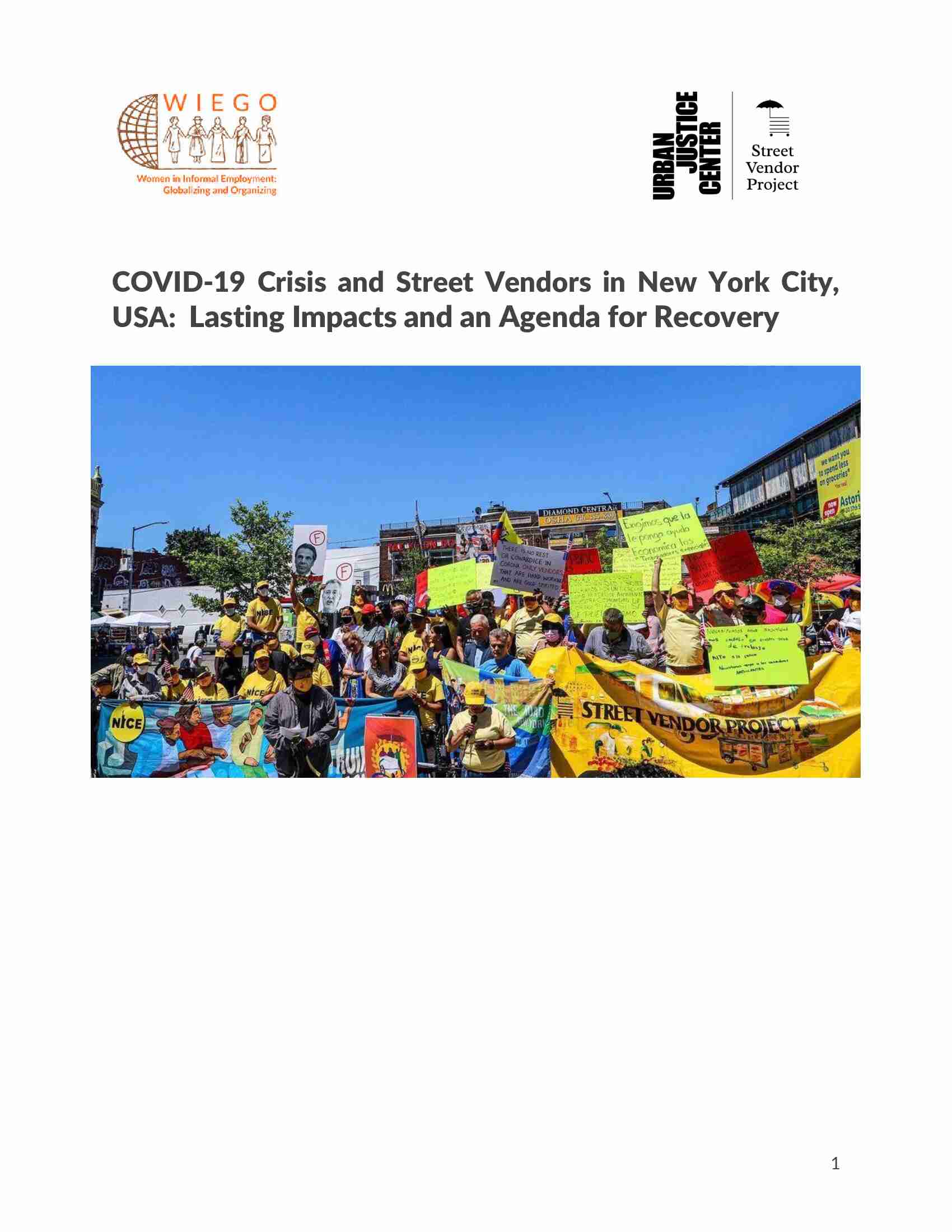COVID-19 Crisis and Street Vendors in New York City, USA: Lasting Impacts and an Agenda for Recovery
Between 10,000 and 20,000 New Yorkers make their living selling food or merchandise on the city’s streets. This report presents the NYC Street Vendor findings from Round 2 of the WIEGO-led COVID-19 Crisis and the Informal Economy study that was conducted in mid-year 2021 to assess how specific groups of informal workers and their households were experiencing COVID-19 resurgences and ongoing economic strains, and to what extent (if any) they had recovered.
Key Findings
Ability to work: Findings from 2021 show a sharp drop-off in the ability of vendors to work and earn in their profession, with some withdrawing totally from the workforce for reasons of physical or mental health, and others switching to low-earning wage work. Respondents cited a poor business climate, lack of customers, rising price of inputs, and ongoing health concerns or illness as barriers to work and recovering their earnings.
Earnings: Among those who have not moved into a new sector, average earnings have improved since mid-2020, but still remain at roughly half of pre-COVID (February 2020) earnings, and 75% of respondents were still making less than $10 per day. Findings suggest that the gap between men and women vendors’ earnings that existed before the pandemic has widened, underlining the enduring systemic obstacles facing women vendors.
Food security: 52% of respondents reported that they had reduced their food consumption over the last 12 months. 46% said that they or other household members had skipped a meal in the last month, or eaten a smaller variety of foods than they would have liked.
Mental and physical health: Respondents described crippling depression and anxiety related to COVID-19 fears and losses, isolation, other health problems, and the pandemic’s economic fallout. 30% of respondents said someone in their household had a positive COVID test in the last year, with an equal number reporting that COVID-19 infections forced them to miss work.
Relief: Federal relief is not reaching vendors and their communities. Only 41% of respondents reported that they received a government cash grant in the last 12 months1 – lower than the 74% who received one during the first three months of the pandemic – and only 39% accessed government food support. Only one respondent had their rent cancelled or forgiven, and only three received business loans.
Ongoing punitive enforcement: While some vendors expressed appreciation for the NYPD’s less punitive enforcement approach during the pandemic, others continued to experience fines, confiscations and harassment from city officials. Many voiced concern about the city’s announcement that it would resume regular enforcement and ticketing, at a moment of incipient and precarious economic recovery.
View list of all: City/Country Level Reports

